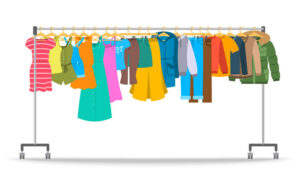Retail establishments are always working to stay ahead of the competition, whether through enhanced product features, better customer service, or lower prices.
Another way some retail businesses are getting ahead is through the use of cloud computing. Cloud services can be adopted in retail sites to handle a variety of functions.
One of these functions is cloud-based communications. Following, we look at some instances where retailers are implementing cloud communication services to improve daily processes in retail locations.
1. To Enable Integrated Communications
Cloud-based communication systems can be set up to merge capabilities across various modules. For instance, retail branches can easily manage customer information through hosted voice services that integrate with customer relationship management (CRM) systems and VoIP systems.
Adding in hosted communication tools like presence and chat gives retailers the opportunity to quickly get in touch with employees in other departments for price and size checks, as well as inventory statuses, and more.
And some of this integration is thanks to Microservices. Microservices – not to be confused with Microsoft – is an emerging technology architecture that breaks down applications into their functional components so that they can be configured in numerous combinations through APIs.
Using Microservices, retail business will be able to experience faster innovation, greater flexibility in packaging, as well as customization to meet each user’s specific needs.
2. To Improve the Customer Inquiry Process
In the past, when a typical customer walked into a retail store to ask questions about a product or its availability, the scenario would go something like this:
A customer walks up to a store employee and makes inquiry. The employee makes a call to the department manager. The department manager then walks over to the closest inventory terminal, which might be in the warehouse, further delaying the original employee’s ability to provide answers and service to the customer in front of them.
But with a well-established cloud system in place, the scenario could go more like this
A customer walks up to a store employee and asks their question. The floor employee picks up their cloud-enabled device and immediately looks up the product information through a web interface. If further information is still required, the employee can check through cloud Presence capabilities whether or not someone in supply chain is available and can chat or establish a video call to finish handling the customer’s requests.
Cloud offers a quicker, more seamless customer-handling process in-store, but today’s retailers are receiving customer inquiries across multiple channels, from web chat to email and social media.
For these types of inquiries, a contact centre solution can provide a single integrated view of the customer across all channels; and, using sophisticated routing, the contact center tool can quickly and efficiently direct the customer to the agent most skilled to handle their request.
3. To Aid in Supply Chain Management
Delays resulting from human involvement, in what is supposed to be an automated process, can really hinder the ultimate goal of effective supply chain management: prompt delivery to the customer.
Oftentimes, the root of this issue stems from a lack of an integrated communications infrastructure. But, cloud can help retail workers make delivery a breeze for their customers.
An interconnected solution consisting of a customer-facing, omni-channel web portal can help retailers in numerous ways. The process first starts with an order made through a cloud-based contact centre; then, using a CRM system, it transfers appropriate delivery data to an ERP system.
With ties back to an easy-to-use web portal, customers can quickly find detailed order status information and delivery updates, in real-time. This saves the company time and money – making supply chain a more efficient process – by providing real-time delivery notifications that result in greater customer satisfaction.
4. To Provide Real-time Reporting
To enable effective marketing tactics, retailers demand ongoing insight into their customer base and changing trends. What these companies would like is a product that tracks social and mainstream media in order to gauge the impact of their brand communications on the market.
Some cloud providers offer real-time reporting, which tracks urgent conversation topics so that retail employees can better handle customer service, potential crises, and competitor benchmarking.
Companies that offer this, like West Unified Communications, have analysts that can create custom reports that feature specific customer demographics, as well as track reactions to new product offerings.
Brand reputation can be protected as alerts give retailers an early warning system to ensure your business is on top of any business-critical issues that may arise.
Author: Guest Author
Published On: 6th Sep 2018 - Last modified: 2nd Oct 2018
Read more about - Guest Blogs, Intrado



































